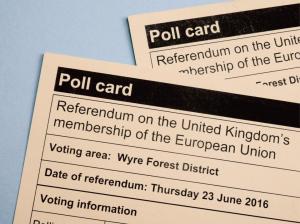While the dust has far from settled, following this enormous bombshell, I thought I’d risk some speculation.
The film and TV industries have been clear that they think it’ll be more difficult to get finance, and that fewer British and European films and programmes will show up in each other’s territories. For the next couple of years, I think we’ll see polarisation between low-budget domestic product, and material which looks as if it’ll be successful internationally. So, anyone who can write good scripts that cost very little and can be shot here, and more Harry Potter.
We might see some unexpected alliances, too, as co-production partners.
The publishing industry has also been clear it thinks Brexit is disastrous. In particular, the US and UK may war over English-language books exported to Europe. If the Americans can get cheaper editions into Europe, the UK publishers will lose many thousands of sales. In response, I think publishers will try and protect their incomes by putting even greater pressure on authors to agree to World rights deals.
It’s never been easy to make a living in this business, but the next few years will call on our best entrepreneurial and creative skills.
Meg





